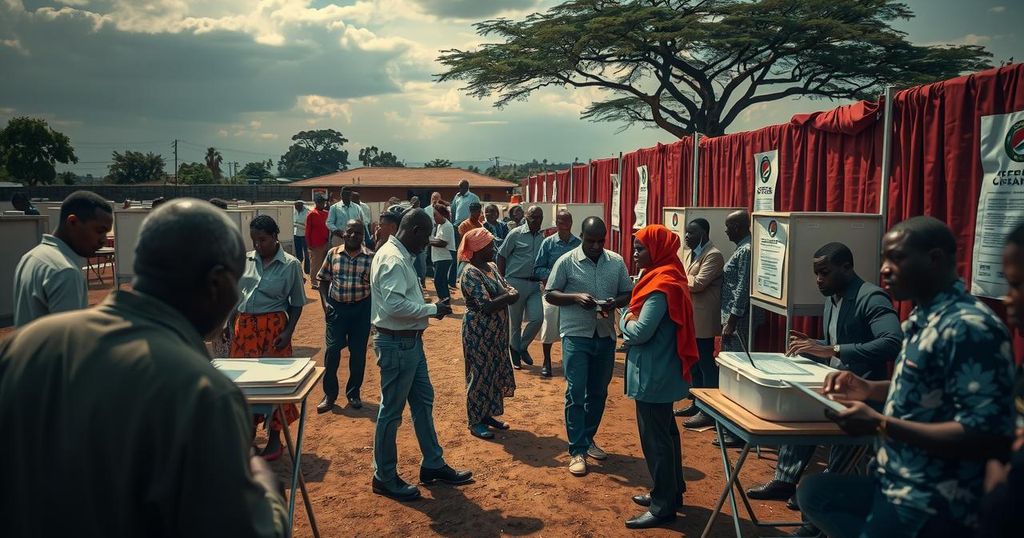Botswana’s Critical Election: Choosing the Future of a Long-Ruling Party

Botswana’s election on October 30, 2024, will determine whether the ruling Botswana Democratic Party, in power for 58 years, will continue its tenure. Facing economic challenges due to a downturn in diamond demand and rising unemployment, the BDP led by President Mokgweetsi Masisi is encountering heightened competition from opposition candidates. The election represents a critical juncture for the country and could indicate a shift in political power amid demands for economic diversification.
Botswana has opened its polls for a significant election on October 30, 2024, in which citizens must determine whether to grant a new term to the Botswana Democratic Party (BDP), which has governed since the nation’s independence in 1966. President Mokgweetsi Masisi, seeking a second and final term, presides over a country facing pronounced economic challenges, particularly due to a global decline in diamond demand, on which Botswana heavily relies. Currently, the unemployment rate has risen to 27%, particularly affecting the youth segment of the population. At this election, voters will choose members of Parliament, who will subsequently elect the president. Although the BDP has been a dominant force in Botswanan politics, recent economic instability has allowed the opposition to gain traction. There are three prominent challengers to President Masisi: Duma Boko of the Umbrella for Democratic Change party, Dumelang Saleshando from the Botswana Congress Party, and Mephato Reatile of the Botswana Patriotic Front. The party has acknowledged the need for policy changes to diversify the economy beyond diamond mining, which constitutes over 80% of its exports. To combat economic stagnation, the government plans to focus on extending revenue-generating activities in mineral processing, agriculture, and tourism sectors. In light of the current economic climate, which has included delayed salary payments for government employees, the BDP has stated that it is committed to addressing voter concerns. The implications of this election extend beyond immediate political results, as it may also reignite tensions between President Masisi and former President Ian Khama, who has publicly criticized Masisi’s governance style after leaving the BDP and recently supported the Botswana Patriotic Front candidate. Votes are expected to be counted promptly after polls close, with results announced shortly thereafter, marking a critical juncture for Botswana as it navigates its path forward amid internal and external challenges.
Botswana has emerged as one of Africa’s success stories since gaining independence from Britain in 1966, often lauded for its peaceful democratic governance and strong economic performance. However, recent economic challenges, particularly linked to fluctuations in the global diamond market, have raised concerns about the sustainability of its economic model and the effectiveness of the ruling Botswana Democratic Party’s policies. The once-stable government is now facing heightened scrutiny from voters who are grappling with rising unemployment and demands for economic diversification. As the country prepares for the election, the BDP has recognized the urgent need for policy reform, particularly in diversifying revenue sources beyond the diamond industry, which has dominated the economy for decades. The election is pivotal, not only for deciding the leadership for the next five years but also as an indicator of the electorate’s confidence in the ruling party’s ability to address pressing economic issues.
In conclusion, the upcoming election in Botswana represents a crucial moment for the nation, as it navigates the dual challenges of a turbulent economy and the potential for political change. With a long-standing ruling party at a crossroads, the decisions made by voters will affect the future direction of Botswana’s governance and economic policy. As various candidates present their visions for the country, it is anticipated that this election will test the resilience of Botswana’s democratic institutions and the responsiveness of its leaders to the will of the people.
Original Source: apnews.com






